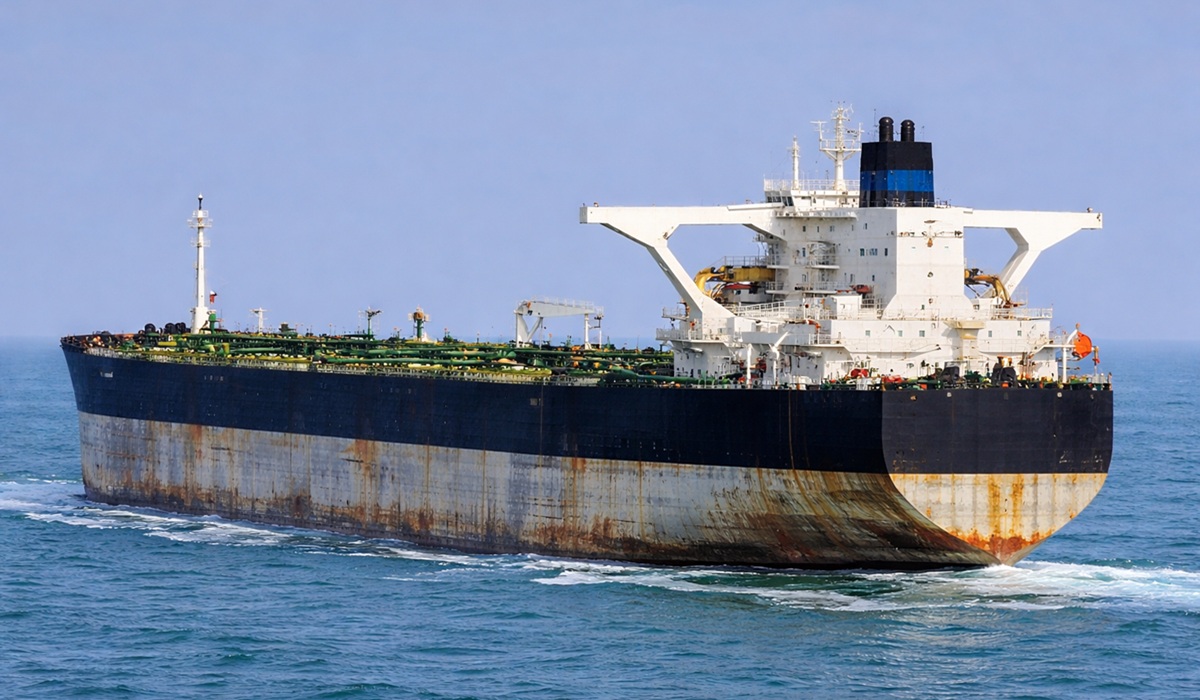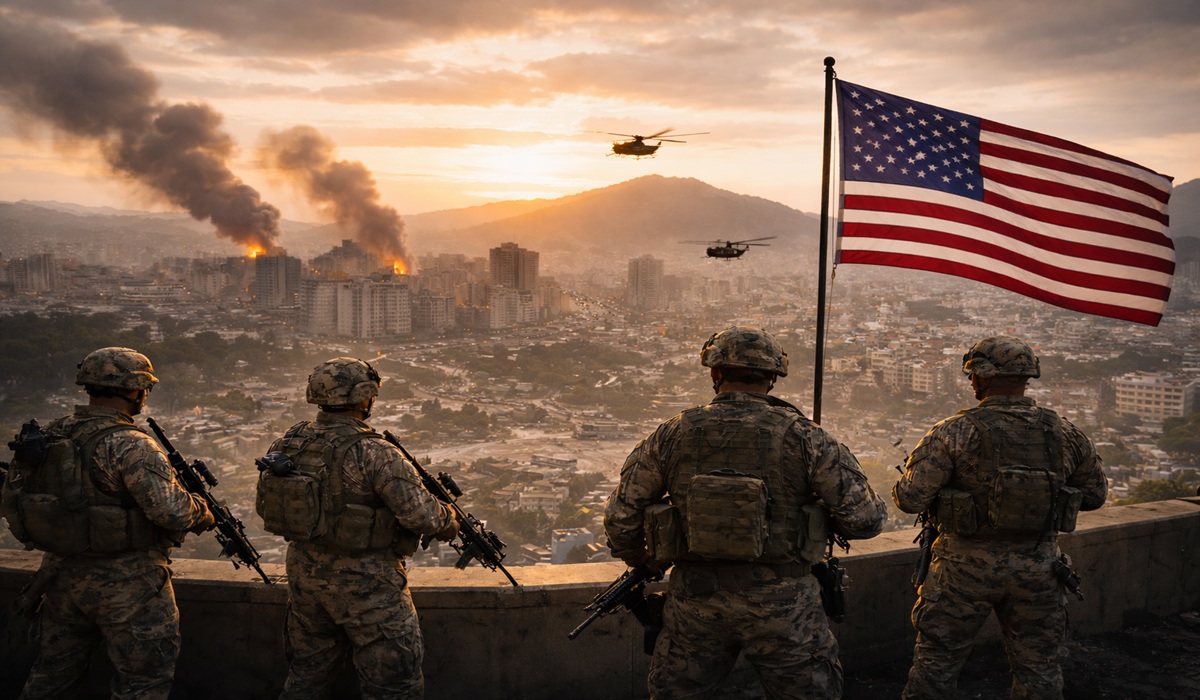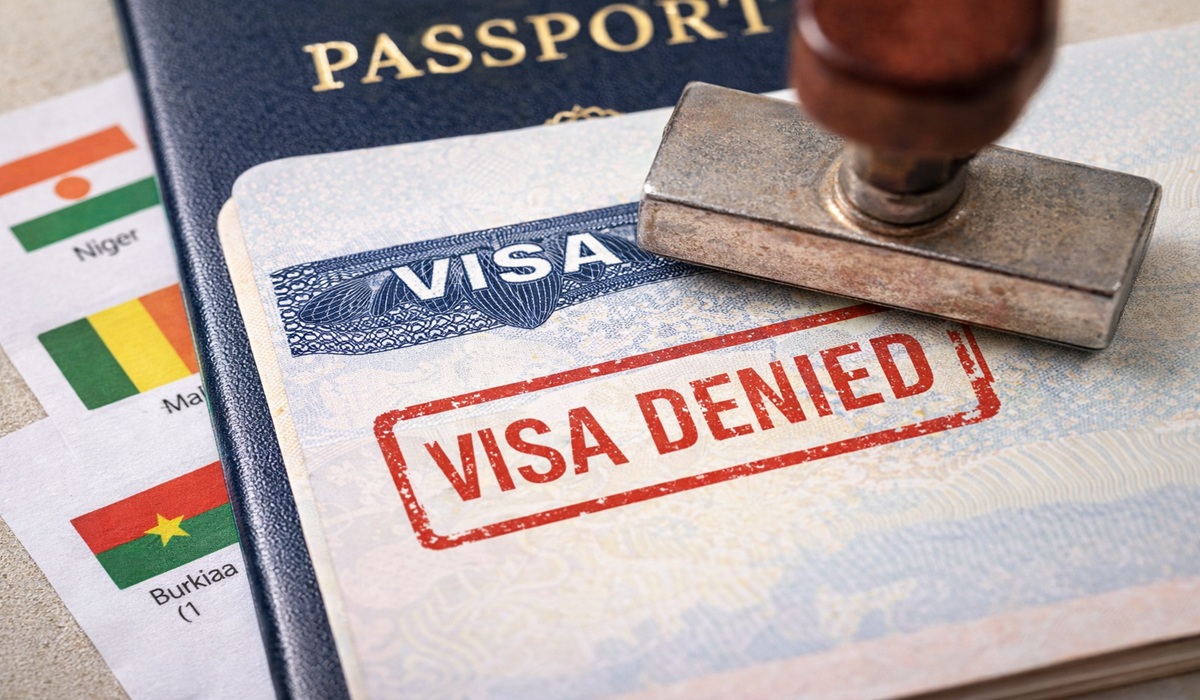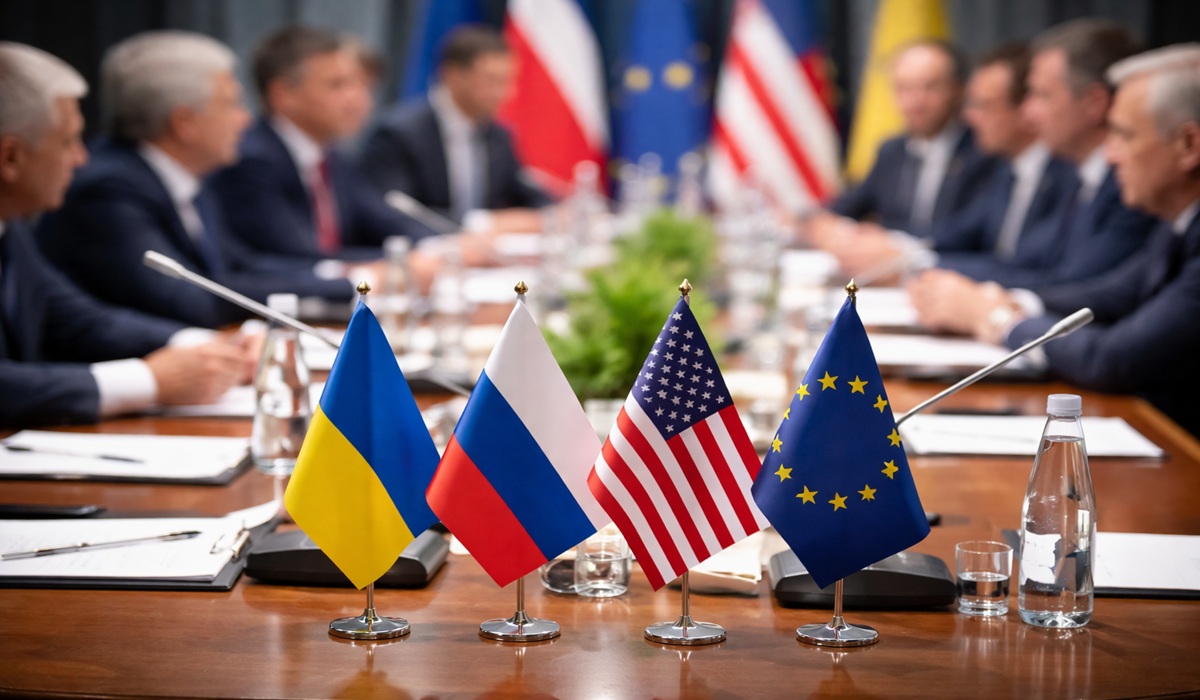Drone Assaults Set Gaza-Bound Flotilla Ablaze, Italy Orders Naval Escort
- TDS News
- Breaking News
- September 24, 2025
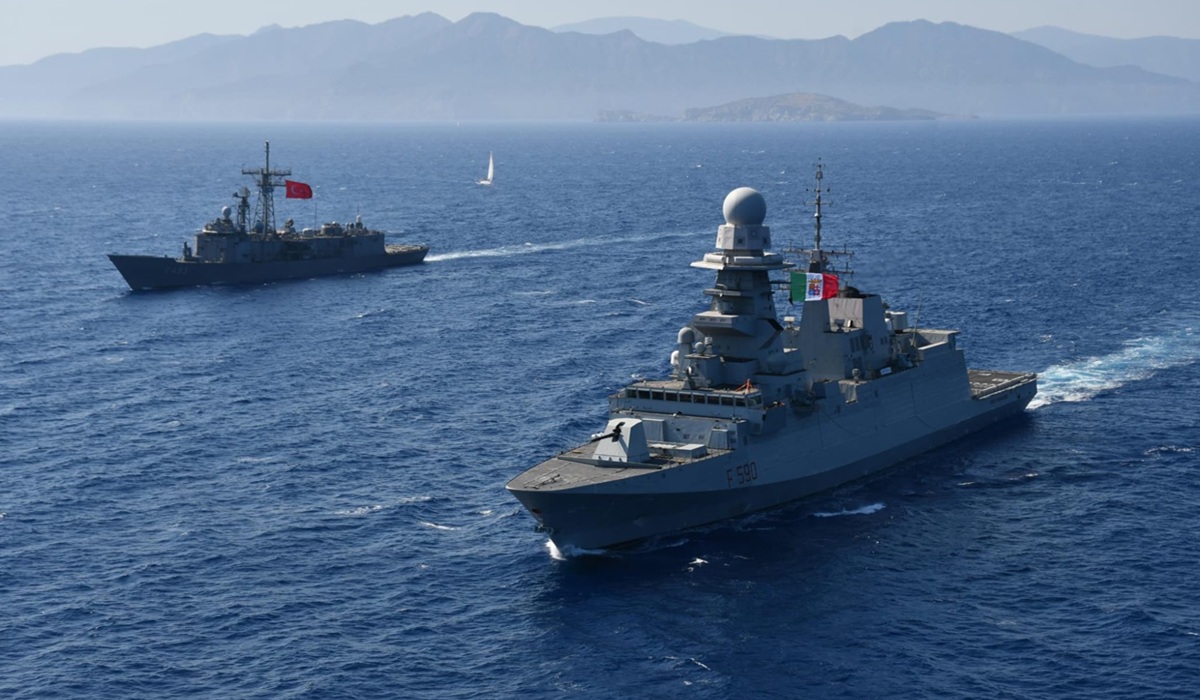
By: Donovan Martin Sr, Editor in Chief
Image Credit: Italy Naval
Italy’s decision to send a naval vessel to shadow and, if necessary, protect the Freedom Flotilla marks a dramatic escalation in a story that began as an act of humanitarian conscience and has now become a matter of national security and regional posture. What was intended as a convoy of small civilian vessels carrying aid, volunteers, and international observers has been transformed by violence at sea into a flashpoint where moral purpose and military calculation collide.
In recent nights the flotilla came under a series of drone attacks after dark. Small craft that were supposed to be safe havens for volunteers and supplies were set alight; fires spread across decks, fuel and stores were ruined, and several boats sustained structural damage severe enough to force them to limp back toward safer waters. Crew members reported harrowing scenes — frantic efforts to douse flames with bucket brigades and handheld extinguishers, engines fouled by shrapnel and soot, and people trying to pull burning material clear before it could ignite fuel tanks. Those aboard concluded the assaults were not random harassment but part of a pattern: precise, nocturnal strikes designed to frighten, disable, and intimidate. Given the nature and timing of the attacks, many aboard the flotilla believe more are likely to come. In the face of repeated, targeted violence, the decision by Rome to dispatch a frigate gained urgency; it was not a purely symbolic move but a practical measure to protect lives and to deter further attacks. This is unprincipled and, for those who witnessed the damage, unimaginable. There is speculation about who might be responsible, but until there is clear evidence, names will not be spoken.
Italy framed its intervention in careful diplomatic language: a mandate of protection and rescue for Italian nationals and other vulnerable civilians, not a provocative challenge to blockades or a pretext for military engagement. Yet when a sovereign state positions a warship alongside a civilian convoy, the signal is unmistakable. Protecting a flotilla at sea transforms a moral protest into an act backed by state power, and that backing changes the calculus for everyone involved. Nations that had previously offered only rhetorical support for humanitarian convoys now face questions about whether words will be matched by deeds — by actual naval escorts, by coordinated air and maritime surveillance, or by diplomatic muscle.
The circumstances around Italy’s deployment are complicated by an equally striking development nearby: Turkey and Egypt conducting joint naval exercises in the same waters the flotilla must transit. These maneuvers, the first of their kind between Ankara and Cairo in many years, were announced as routine training aimed at improving interoperability and readiness. But the coincidence of timing and location is politically charged. Military drills are never solely about rehearsal; they project presence and test command-and-control systems. Warships, submarines, and maritime patrol aircraft engaged in exercises can monitor approaching vessels, shadow them, and, if ordered, exert control over sea lanes. In that sense, the Turkish-Egyptian drills and Italy’s frigate are not merely parallel events — they are overlapping signals in a maritime environment where every movement is scrutinized.
The domestic political backdrop in Rome cannot be ignored. Prime Minister Giorgia Meloni has been under withering criticism for refusing to recognize Palestine as a state. That refusal triggered massive unrest at home: riots in major cities, occupations of public squares, and a paralyzing wave of strikes that shut down transit systems, grounded aviation, and brought government services to a halt. For days, Italy resembled a country in suspended animation. Critics have accused Meloni of being on the wrong side of history, of ignoring a moral imperative that much of Europe has already embraced. This naval deployment, some argue, may be her way of saving face — a gesture of solidarity at sea to offset her refusal on statehood. The irony is not lost on observers, as Meloni has frequently blasted French President Emmanuel Macron for France’s destructive policies in Africa. To critics, her posture toward Palestine is cut from the same cloth she condemns.
For the flotilla’s organizers and volunteers, these overlapping signals matter practically as well as symbolically. A civilian convoy escorted by one or more European warships could argue for a degree of de facto protection under norms of freedom of navigation and humanitarian access. Yet protection can be indistinguishable from provocation in a tense theater: a foreign frigate near contested approaches to Gaza could be portrayed by others as an unlawful escort, potentially inviting a confrontation that no one claims to want. Meanwhile, the presence of two powerful regional players exercising warfighting capabilities nearby adds a layer of ambiguity. Neither Turkey nor Egypt has declared itself a defender of the flotilla, but their naval posture — combined with the nocturnal pattern of drone strikes the flotilla has suffered — creates a perilous atmosphere in which miscalculation is more likely.
Behind all of this lies a core tension between legal principle and strategic reality. The flotilla’s purpose is humanitarian: to deliver aid, bear witness, and challenge a blockade many view as a barrier to civilian survival. International law gives weight to the protection of civilians and to the right of relief organizations to operate, but it also recognizes state rights to secure waters under certain conditions. When activists at sea are met with violence, and when the only immediate defensive response available to them is the presence of a state warship, the legal and moral clarity that originally animated the mission becomes muddled by the mechanics of deterrence and defense.
The human consequences are immediate. Volunteers who set out to deliver food and medical supplies are now dealing with trauma, damaged boats that may be unseaworthy, and the constant anxiety of further strikes at night. Aid that could have gone to families in desperate need has been consumed by firefighting foam and charred timber. The flotilla’s organizers have been forced to weigh the moral imperative of persistence against the responsibility to protect people on board. That calculus is why Italy’s intervention was framed as rescue-first: if the convoys are to continue, they must be able to do so without becoming predictable targets for nocturnal attacks.
What happens next depends on choices by multiple actors. If Italy’s action is followed by other European states offering escorts, the convoy could acquire a layer of protection that deters future strikes. If, however, those strikes continue and another nation is suspected — even if not publicly named — diplomatic tensions could spike and naval deployments could multiply, producing a far more dangerous maritime standoff. If Turkey and Egypt shift their drills from training to purposeful positioning, the eastern Mediterranean might quickly resemble a theater of competing forces rather than a corridor for humanitarian passage.
In the end, this episode exposes a sobering reality: in an age of drones and deniable attacks, humanitarian acts at sea can no longer rely solely on moral suasion. They require protection, and that protection brings politics, risk, and the possibility of escalation. The Freedom Flotilla began as a statement of solidarity and aid; after nights of drone strikes, fires, and damaged boats, it stands as a test of whether states are willing to back humanitarian principles with the concrete means to ensure safety. Italy’s naval move may be cast as principled protection, but for many at home and abroad, it also looks like an attempt by its embattled leader to balance on the knife’s edge of history.

